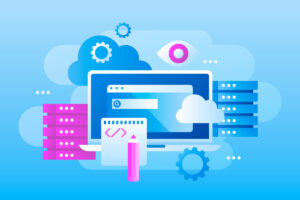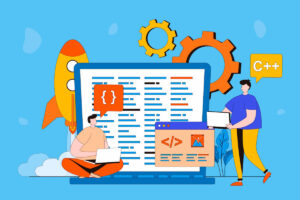When it comes to Full Stack PHP Development, there are a plethora of frameworks available that can streamline the development process, improve efficiency, and enhance the overall performance of the application. In this article, we will explore some of the top frameworks that are widely used by developers in Full Stack PHP Development.
1. Laravel
Laravel is one of the most popular PHP frameworks that is known for its elegant syntax and powerful features. It provides a robust set of tools for building web applications, making it a top choice for Full Stack PHP Development. Laravel offers features such as routing, authentication, caching, and database migrations, which can significantly speed up the development process.
Key Features of Laravel:
- Eloquent ORM for database management: Laravel’s Eloquent ORM allows developers to interact with the database using an expressive syntax, making it easier to work with database records and relationships.
- Blade templating engine for creating dynamic web pages: The Blade templating engine in Laravel provides a simple yet powerful way to create dynamic web pages by allowing developers to use plain PHP code in their views.
- Artisan command-line interface for automating repetitive tasks: Laravel’s Artisan CLI tool enables developers to automate common tasks such as database migrations, seeding, and testing, saving time and effort in the development process.
2. Symfony
Symfony is another widely used PHP framework that offers a set of reusable components and libraries for building web applications. It follows the MVC (Model-View-Controller) design pattern, making it easy to separate the business logic from the presentation layer. Symfony provides features such as routing, security, form handling, and validation, which can help developers build complex web applications with ease.
Key Features of Symfony:
- Twig templating engine for creating flexible and maintainable templates: Symfony’s Twig templating engine allows developers to create clean and maintainable templates by separating the presentation logic from the application code.
- Doctrine ORM for database management: Symfony’s Doctrine ORM provides a powerful tool for mapping database tables to PHP objects, making it easier to work with database data in an object-oriented way.
- Console component for building command-line applications: Symfony’s Console component enables developers to create command-line applications that can perform a variety of tasks, such as running migrations, generating code, and executing custom commands.
3. CodeIgniter
CodeIgniter is a lightweight PHP framework that is known for its simplicity and ease of use. It provides a small footprint and minimal configuration, making it a great choice for developing small to medium-sized web applications. CodeIgniter comes with features such as easy database management, form and data validation, session management, and error handling, which can help developers build web applications quickly and efficiently.
Key Features of CodeIgniter:
- Built-in libraries for common tasks such as form validation and email sending: CodeIgniter provides a set of libraries that can help developers perform common tasks, such as form validation, email sending, and session management, without the need for external dependencies.
- Active Record implementation for database operations: CodeIgniter’s Active Record implementation simplifies database operations by providing an intuitive way to interact with the database using a chaining syntax.
- Security features such as XSS filtering and CSRF protection: CodeIgniter includes built-in security features that help protect web applications from common security threats, such as cross-site scripting (XSS) and cross-site request forgery (CSRF).
4. CakePHP
CakePHP is a powerful PHP framework that follows the convention over configuration principle, making it easy to get started with development. It provides a set of conventions for naming files and folders, which can help developers write clean and organized code. CakePHP offers features such as scaffolding, database migrations, form generation, and validation, which can streamline the development process and reduce the amount of code needed to build web applications.
Key Features of CakePHP:
- Bake console for generating code templates: CakePHP’s Bake console allows developers to quickly generate code templates for controllers, models, views, and other components, reducing the time and effort required to create basic CRUD operations.
- Authentication and authorization components for user management: CakePHP provides built-in components for handling user authentication, authorization, and role-based access control, making it easier to manage user accounts and permissions in web applications.
- Request handler for managing HTTP requests: CakePHP’s Request handler simplifies the process of handling HTTP requests by providing a convenient interface for accessing request data, headers, and parameters.
Conclusion
In conclusion, there are several top frameworks available for Full Stack PHP Development, each with its unique features and advantages. Developers can choose the framework that best suits their project requirements and coding style to build robust and efficient web applications. Whether you prefer the elegance of Laravel, the flexibility of Symfony, the simplicity of CodeIgniter, or the convention of CakePHP, there is a framework out there to help you take your Full Stack PHP Development to the next level.
Got questions about Full Stack PHP Development or these frameworks? We’re here to help! Feel free to Contact us and our experts will be happy to assist you.
FAQs:
1. What is Laravel and why is it popular in Full Stack PHP Development?
Laravel is a popular PHP framework known for its elegant syntax and powerful features. It offers tools for building web applications, such as routing, authentication, caching, and database migrations, which can speed up development.
2. What is Symfony and what are some key features of this PHP framework?
Symfony is a PHP framework that offers reusable components for building web applications. It follows the MVC design pattern and provides features like Twig templating engine, Doctrine ORM, console component, event dispatcher, and dependency injection.
3. Why is CodeIgniter a good choice for developing small to medium-sized web applications?
CodeIgniter is a lightweight PHP framework known for its simplicity and ease of use. It requires minimal configuration and provides features like easy database management, form and data validation, session management, and error handling for efficient web development.
4. What are some common features of CodeIgniter that can help developers in Full Stack PHP Development?
CodeIgniter offers built-in libraries for tasks like form validation and email sending, an Active Record implementation for database operations, and security features like XSS filtering and CSRF protection to aid developers in building web applications quickly and securely.












+ There are no comments
Add yours